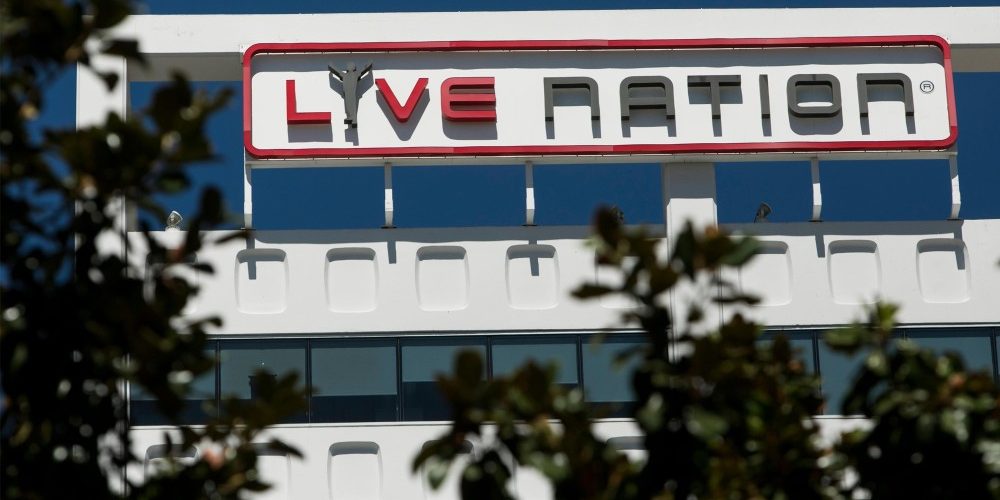Live Nation and Ticketmaster facing lawsuit over alleged “predatory and exclusionary conduct”
Live Nation and Ticketmaster – both of which formally merged in 2010 to become Live Nation Entertainment – are being sued for allegedly violating antitrust laws, with plaintiffs arguing that the companies have engaged in “predatory” behaviour to monopolise the market for concert tickets.
The suit was filed in California’s federal court on Tuesday (January 4), with a group of plaintiffs from California, Ohio and Florida – said to rank in the “hundreds of thousands if not millions” – represented by attorneys at Quinn Emanuel and Keller Lenkner. It’s the second filing of the sort made by Quinn Emanuel, following a similar attempt to sue Live Nation and Ticketmaster in 2020.
That suit ended with a federal judge ruling in favour of Ticketmaster. According to Billboard, the final verdict was that “when plaintiffs purchased their tickets, they had agreed to settle any disputes with Ticketmaster via private arbitration rather than in open court”. The attorneys subsequently filed to appeal that ruling, with the outcome of such still pending at the time of writing.
Adding claims that the companies force “aggrieved consumers” into “one-sided” arbitration agreements, the new lawsuit claims that with the combined weight of their influence over the live entertainment sector, the companies are able to intimidate venues into selling tickets for their events exclusively through Ticketmaster – lest they be neglected by Live Nation when future tours are booked – and that they subsequently overcharge customers, with no fear of competition.
“Defendants’ anticompetitive scheme has been wildly successful and today threatens to put nearly all ticketing services for major concert venues (primary and secondary) in the United States under Ticketmaster’s monopolistic thumb,” the filing reads, alleging that Ticketmaster have “clearly engaged in blatant, anti-consumer behavior for years”.
The filing continues: “In addition to its behind-the-scenes efforts to feed ticket brokers huge amounts of supply if they sold on Ticketmaster’s secondary platform, the DOJ recently needed to move to extend the consent decree it originally crafted to permit the Live Nation Entertainment-Ticketmaster merger, because Defendants – as has only recently become public to ticket-buying consumers – shamelessly violated its terms for years.”
It’s argued that because both entities operate under the same parent company, Live Nation and Ticketmaster hold an unfair amount of leverage over their respective competitors in the touring landscape. The merged company “is able to keep a stranglehold on concert promotion services”, it’s alleged, “by paying its clients exorbitant amounts”.
Quinn Emanuel’s attorneys claim Ticketmaster exist as a dominant force because “venue operators must take into account the very real possibility that Live Nation Entertainment will not route tours through their venues if they do not select Ticketmaster as their primary ticketing service provider”.
They claimed the proof of this was recent public filings made by the US Department Of Justice’s Antitrust Division, alleging that once Live Nation and Ticketmaster had merged, they “regularly threatened venues with less (or no) Live Nation Entertainment tours if they did not select Ticketmaster as their primary ticketing service provider”.
As for Ticketmaster’s arbitration processes, the new suit alleges that the company recently changed its terms to place ticketholders at a significant disadvantage.
Quinn Emanuel’s attorneys claim that the new arbitration agreement “requires consumers to engage in a novel and one-sided process” that “skews the odds so egregiously in [Ticketmaster’s] favor through its defense-biased provisions, and is imposed in such a procedurally unfair manner, that it is permeated with unconscionability to a far greater degree than the [prior agreement]”.
In a statement offered to Billboard, a spokeswoman for Live Nation said: “Plaintiff’s attorneys have made prior, unsuccessful attempts to bring nearly identical class actions. We are confident in the judicial process.”
